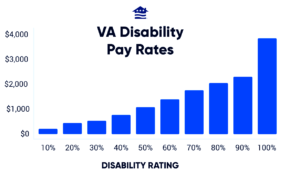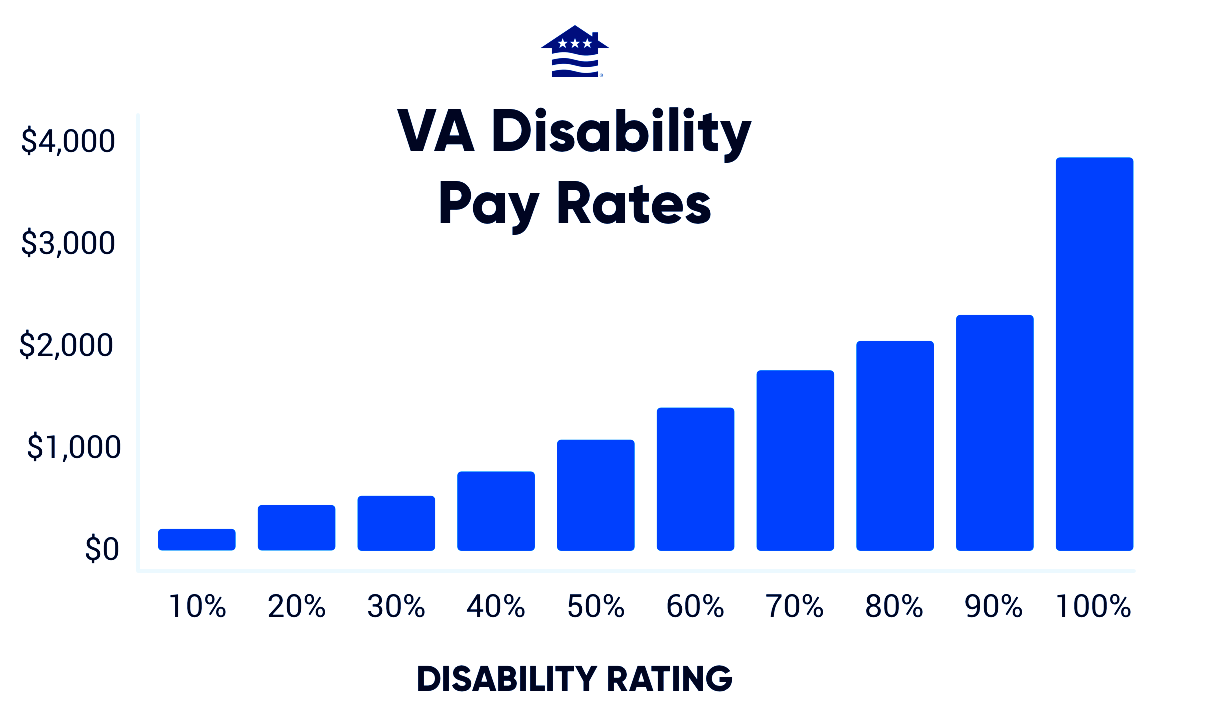Introduction: The Journey to Disability Benefits
Veterans seeking disability benefits face a complex and challenging process. The intricacies of deciphering regulations and gathering appropriate documentation can be overwhelming. Yet, understanding your VA disability rating is crucial to approaching this journey confidently. Every process step, from initial application to potential appeals, requires meticulous attention and preparation. The stakes are high as these benefits significantly impact veterans’ livelihoods and access to essential care, making preparedness key to overcoming common hurdles.
Despite these challenges, becoming well-versed in the necessary protocols and frequent obstacles can transform an intimidating task into a manageable endeavor. Being aware of what to anticipate and how to get ready improves the chances of a positive result, offering essential assistance to veterans as they move from military to civilian life. Let’s delve into veterans’ everyday challenges and practical strategies to navigate this journey effectively.
Common Misunderstandings and Their Impacts
Veterans often confront various misunderstandings about their disability claims, stemming primarily from complex regulations and ambiguous eligibility criteria. Misinterpretation of what qualifies as service-connected disabilities can severely impair the submission and processing of claims. Unfortunately, incorrect or incomplete applications due to these misconceptions are common, leading to disappointing delays or rejections. Overlooked requirements or misunderstood procedural nuances frequently derail claims.
These misunderstandings are not mere inconveniences; they can disrupt the timeline, causing financial and emotional stress. For example, a veteran unfamiliar with the need for comprehensive service records might submit an insufficient claim, missing critical information linking their health conditions to military service. By educating themselves about common pitfalls, veterans can preemptively address these issues, ensuring their claims are accurate and complete.

Tips for Gathering Necessary Documents
Document collection is a foundational step in the claims process and presents challenges. To substantiate their claims, veterans must provide thorough documentation, including medical reports, service records, and personal statements. The sheer volume of required paperwork can be daunting. Essential data, such as military service details, the onset and progression of health issues, and medical interventions undertaken, must be meticulously compiled and presented.
Organizing these crucial documents involves strategic planning. Veterans should begin by compiling a checklist of necessary documents and request copies of service records and medical histories from the respective agencies. By systematically organizing this information and ensuring its completeness, veterans can improve the efficiency of their submission. A well-prepared documentation package lays the foundation for a robust application, reducing the likelihood of processing delays or initial rejections due to missing information.
Navigating the Application Process
The application phase is notorious for its complexity, often involving intricate details and specific forms that veterans must carefully complete. One critical aspect is accurately documenting the extent and nature of disabilities by VA requirements. Veterans must provide comprehensive and precise information in each application section to represent their claims accurately. Poorly filled forms or contradictory information can lead to the denial of benefits. Thus, veterans should utilize online guides or seek assistance from veteran service organizations to ensure applications are filled meticulously. Familiarizing oneself with procedural guidelines is also beneficial in avoiding inadvertent errors. Consistent follow-ups after submission can keep the process moving forward, providing an opportunity to promptly address any requests for additional information from reviewers.
Understanding the Appeals Landscape
A disability claim denial does not mark the end of a veteran’s quest for benefits. A practical appeal can thoroughly recalibrate one’s application, providing an opportunity to supply additional evidence or rectify earlier oversights. Understanding the nuances of the appeals process is imperative. A practical appeal can critically alter the path toward obtaining necessary benefits, emphasizing the importance of precision in every appeal.
After receiving a denial, veterans should review the decision carefully to understand why their claim was not approved. This evaluation helps focus the subsequent appeal efforts on the aspects the VA found lacking. In many cases, gathering supplementary evidence to support the initial claim or obtaining expert medical opinions can be highly beneficial. Moreover, contacting experienced advocates or legal representatives specializing in VA claims ensures a knowledgeable and strategic approach to appeals.
Legal Assistance and Advocacy Support
Successfully navigating the disability claims process requires expert legal support. Veterans law is a distinct realm that demands specialized knowledge and experience. Legal professionals in this field can provide invaluable assistance, guiding veterans through the procedural intricacies and advocating. Numerous veterans find solace in the aid rendered by advocacy groups supporting their causes. These organizations offer comprehensive understanding and advocacy, ensuring veterans are never alone in pursuing deserved benefits. Establishing such support networks early in the claims process can provide clarity, encouragement, and, most importantly, expert guidance in moving forward strategically and successfully.
Mental Health Support During the Process
The emotional toll of pursuing disability benefits can be taxing. Veterans may face psychological stress due to the lengthy and often uncertain nature of the claims process. Thus, maintaining mental health and well-being is paramount. Ensuring access to mental health services can significantly help veterans cope with anxiety and stress associated with navigating the VA system. Engaging with mental health professionals who understand the unique challenges faced by veterans can provide meaningful support. Additionally, participating in veteran support groups offers shared experiences and strategies, contributing to emotional and mental resilience. Encouragingly, several resources are now available specifically for veterans to address these needs proactively.
Conclusion: Moving Forward with Confidence
Securing disability benefits represents a pivotal achievement in a veteran’s life, providing crucial support and resources. While obtaining these benefits can be complex, being informed and prepared makes a significant difference. Through understanding common challenges and employing effective strategies, veterans can navigate the system proficiently, ensuring they receive the support they have rightfully earned. With the proper knowledge, resources, and support systems, veterans can confidently navigate the application process, making transitioning to civilian life smoother and more sustainable despite its challenges.


